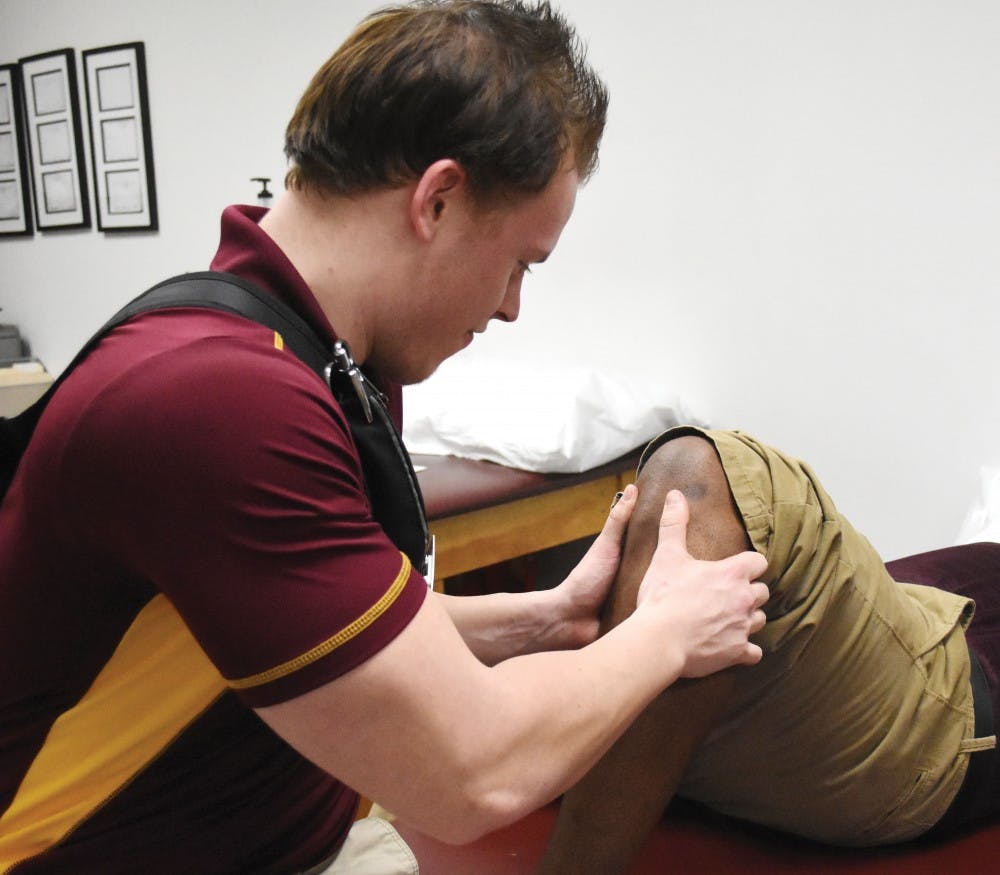Athletic training to become graduate program within four years

Southgate junior Tyler Shumake demonstrates treating a patient on March 24 in the Injury Care Center at the Student Activity Center.
Students pursuing an undergraduate degree in the athletic training program will be some of the last as it will move to a graduate program by 2021.
Rene Shingles, chairwoman of the School of Rehabilitation and Medical Sciences, said the change has to do with accreditation. One option for dealing with the change she said would be to turn the program into an accelerated master’s degree.
A five-year program would entice more students to join the master program, she said. In fall 2016, 67 students were signed athletic training majors, according to the Office of Institutional Research.
“We are thinking of implementing a ‘three plus two’ program, with three years counting toward their undergraduate credits and the fourth year having credits that count toward both undergraduate and graduate credits,” Shingles said.
The Commission on Accreditation of Athletic Training Education accredits Central Michigan University’s athletic training program. CAATE cited the need for higher standards in a press release following the commission’s approval of the change in 2015.
“This decision to shift the degree level is essential to ensuring our future ability to meet the expectations of the health care team, to continuing to improve patient outcomes, and to keep our profession sustainable for generations to come,” stated the release.
CMU’s program will include new standards and requirements for students. Currently, students are required to take courses focused on injury prevention, sports nutrition and field work. Shingles said some of the new skills the program would teach include drawing blood, minor suturing and providing fluids via IV.
The new requirements for students will be approved by September and will take effect at a later date.
Students enrolled in the program will be able to complete their bachelor’s degree, Shingles said. Students will no longer be able to enroll in the undergraduate program at a certain point, but no date has been set.
Sterling Heights senior Shelby Robosan said learning to put in sutures and using IVs will improve the program.
“The master degree will offer more benefits and we will be more qualified to carry out our duties,” Robosan said.
The change will not drastically increase spending in the college, Shingles said. She added that the accelerated major may cost students less to obtain a bachelor’s and master’s degree within five years.
Grosse Isle senior Troy Sonacrat said the change will be good for students pursuing a career in athletic training.
“Most in health professions get a master anyway so it’s good to have the change take effect,” Sonacrat said.



